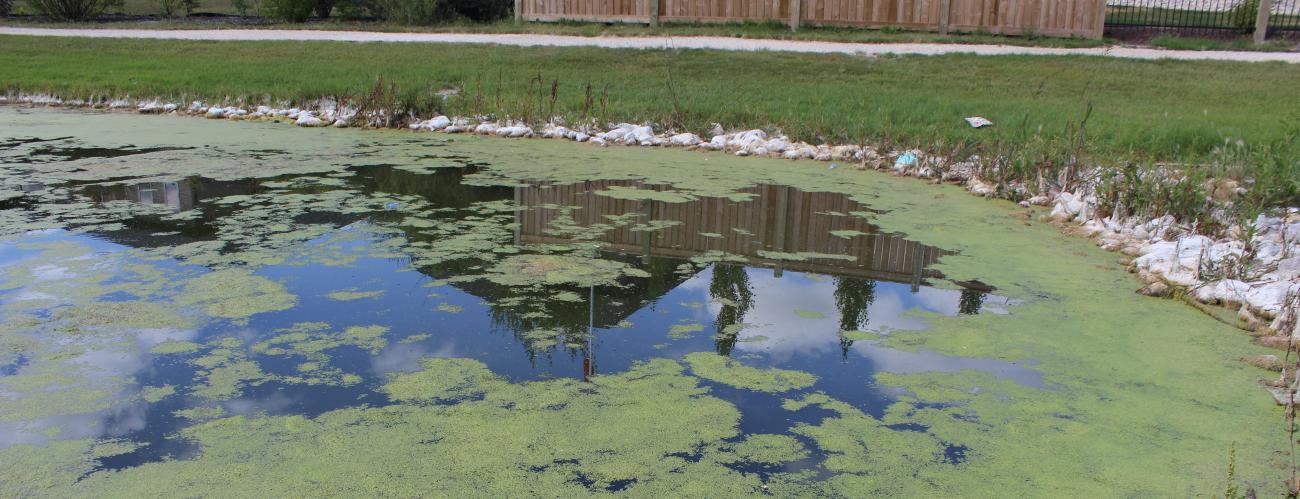On October 6, the Town of Niverville received a water quality report for the retention ponds in Fifth Avenue Estates from Native Plant Solutions.
At a council meeting on Tuesday night, Mayor Dyck explained that the report was conducted because of concern over the growth of cattails around the lakes, as well as frequent algae blooms.
“We want to make sure our ponds, which are intended to retain stormwater, are healthy, and to be able to answer questions regarding the growth in the ponds such as cattails and algae,” says Dyck. “This is why we asked for the study, so we would know about the healthy and safety of pets and geese and fish, or other animals encountering the lakes.”
Councillor Dueck then reflected on the unsightly algae, asking, “What are the affects of spiking the lakes with chemicals to affect algae growth?”
Bruce Friesen-Pankratz, a wetland ecologist, was present at the meeting to explain the report and its implications.
“We wouldn’t recommend chemical treatments,” said Friesen-Pankratz. “There is one solution that is sometimes used, but it results in a sort of sludge at the bottom of the lake, which isn’t healthy. [Regarding lake wildlife], there are likely only ‘small fry’ size fish in the lakes. The naturalized approach to these areas always includes an ‘upland’ area. The reason you see geese on properties is they prefer grass that is short. By using native grasses, longer grasses, you discourage geese from coming up from the ponds onto people’s properties.”
Council also asked about using mechanical aeration, such as fountains, to promote more oxygenation of the water and movement on the water’s surface to discourage algae and other growth.
“In some systems I’ve seen, including fountains, they tend to just push the floating duckweed to the edges, which is unsightly to residents,” Friesen-Pankratz said. “But it still grows. So you’re mostly moving the decomposing matter, just stirring it up, which stimulates further decomposition. There is more upkeep in the long run to remove the dead matter and you’ll end up with higher levels of algae in your ponds. Algal communities reproduce so quickly. In a natural system, you have many algal communities that can uptake the nutrients at different points in their life spans and clean water systems more efficiently. Aeration, though, is usually for promoting fish life, so they can have available oxygen. For algal communities, you want to control the phosphorous levels.”
Councilllor Chris Wiebe said that he would’ve liked for the report to compare the lakes in Fifth Avenue to The Highlands lakes, which he described are following the more natural water drainage areas versus the more manmade approach in Fifth Avenue.


